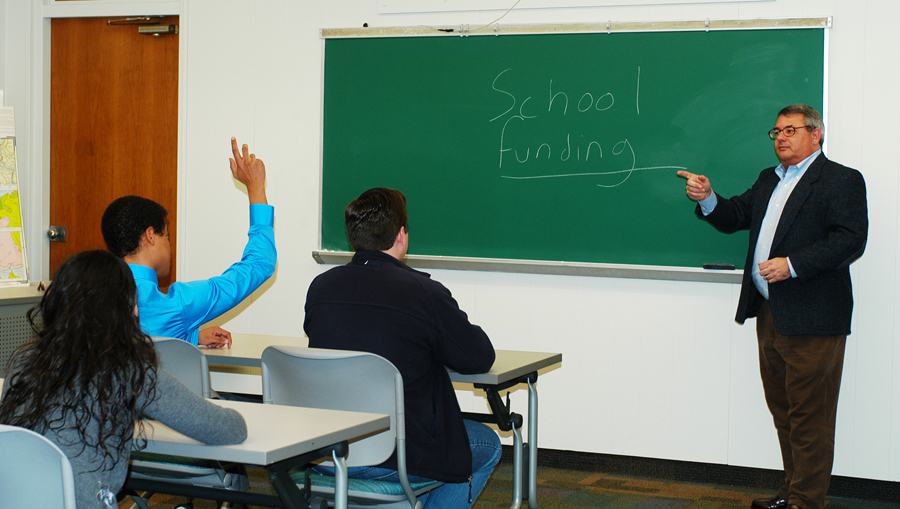
Starting with the founding, each state that allows charter schools (currently 45 states and DC) have their own laws which vary slightly but the basic formula is that a portion of the money collected through taxation for the purpose of state education is redirected to these contracted institutions to help offset the cost of their tuition. Simply put, they are public schools by financial means only. Beyond that, there is often very little oversight compared to traditional state public schools (more on that in a bit). In most states, education founds are already stretched thin. To remove more from public education can only further delay any meaningful improvements, which no one denies there is need of.
On to my second point, accountability. As a public school teacher, I can attest to the stress and pressure of what feels like constant evaluations. From administration observations to the statewide standardized testing data, we get put through some serious scrutiny these days. Charter schools, being privately operated, don't have those same legal obligations. I can see the benefit of this, as I often struggle to design my instruction the way I truly want and in line with modern researched data on best teaching practices because the way we are evaluated is still stuck in the past. While I or my peers may be teaching well or better than traditional methods of teaching, we may lose points on the evaluation because it doesn't match what they are looking for. This sort of pressure doesn't exist to the same degree or even at all within charter schools. Which in theory sounds nice but in practice, research has shown that students at charter schools perform at the same level or worse than public schools across similar metrics.
Another point people think of when charter schools are mentioned is that they are an alternative for urban school districts and a "way out of poverty" for some students. The problem here is that because these schools are privately run and don't follow the same laws public schools do, they can pick and choose the times of students they enroll and keep. This not only shatters the illusion of some magic ticket out of a failing system but also skews their data by not having to accept students with disabilities and handicaps. The standards taught as such schools can wildly differ from their public counterparts, sometimes even pushing certain biases rather than teaching facts and letting students form their own conclusions.
Overall, charter schools were a decent attempt at fixing a broken system but their time has passed. Instead of looking to take even more resources from our already strained public systems, politicians and people should be encouraging more funds and resources as well as a culture shift in the way we are forced to conduct our trade. There is a plethora of data available showing that we can do education better if we are brave enough to accept a different way of teaching but that would mean a drastic change in how we teach, evaluate, and grow our students into life long learners, not just graduation numbers for the state.
This is a great take on the charter system. I agree that they were a good try to solve a real problem, but they've ben failing the system for years and its time to move their funding to other more practical solutions.
ReplyDeleteI really appreciate your point that the majority of charter school advocates don't have a good sense of how school systems work (and unfortunately this probably includes the current Secretary of Education). In line with that, your line about charters being advertised as "ways out of poverty," is fantastic, although I personally would have appreciated commentary on the racial coding of that rhetoric. Many of the laws governing schools, which as you point out don't apply to charters, are civil rights laws that provide for free, universal education in our country. It is troubling to me to see money earmarked for that purpose being funneled into institutions that are not beholden to the public interest.
ReplyDeleteInteresting that Doug and you both did charter schools this time around. I use to work in the private sector working for German businesses in sales. The mind set of business people, in my experience, is the following: 1. Education doesn't really matter, either you can do a job or have skill, or you can't/don't. Learning by doing is always superior. 2. Privatization is always better because (the invisible hand) and/or competition bring out the best in people and products. 3. What is best for everyone is mainly through the lens of economics, standard of living on average in an area quantified through yearly income is the only valuable metric. The social elements of a problem, ideas of justice or equity, and research about demographics or populations in a system (in this case education) aren't even things to agree or disagree about, they simply are not of interest. "sacrificing" even the majority to get a few highly capable people (along whatever metric the business leadership prefers at the time) is the end goal. Social Darwinism in the sense of what I have just laid out is an implicit assumption about the world. Map these qualities onto education and the problem of charter schools and their fundamental contrast to public education is apparent. Although, public education is often filled with decision makers who share this mindset because the come from a business background, so the distinction is sometimes illusory (but that is another topic).
ReplyDelete